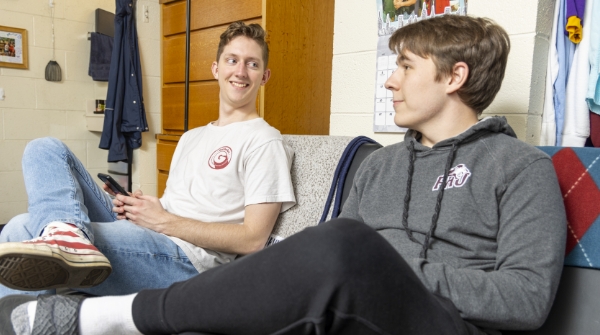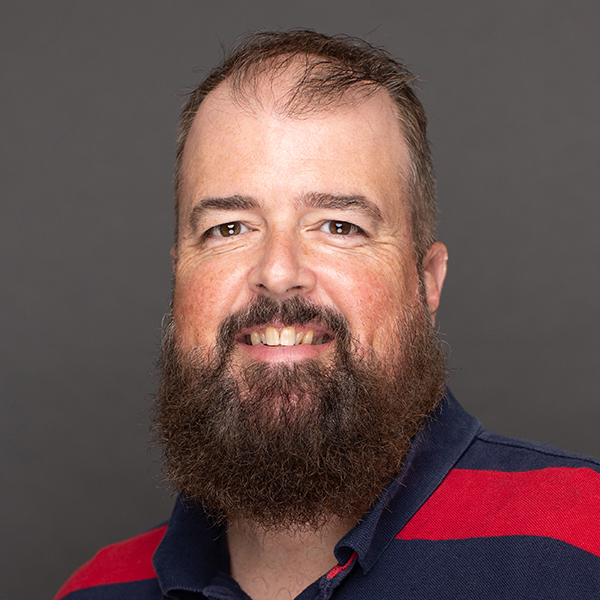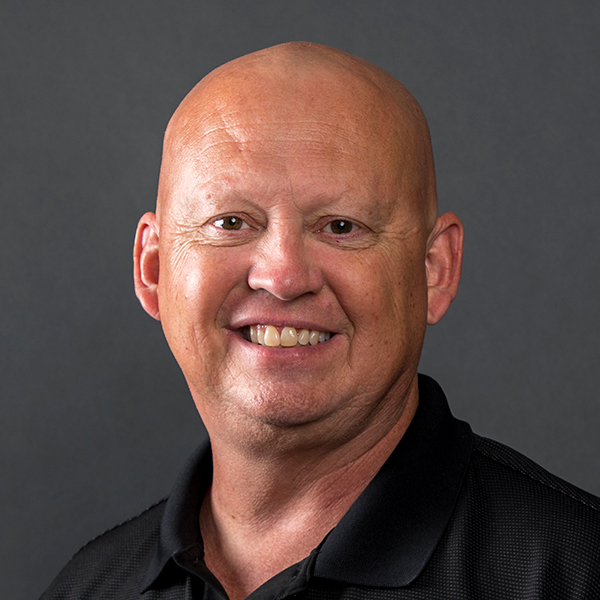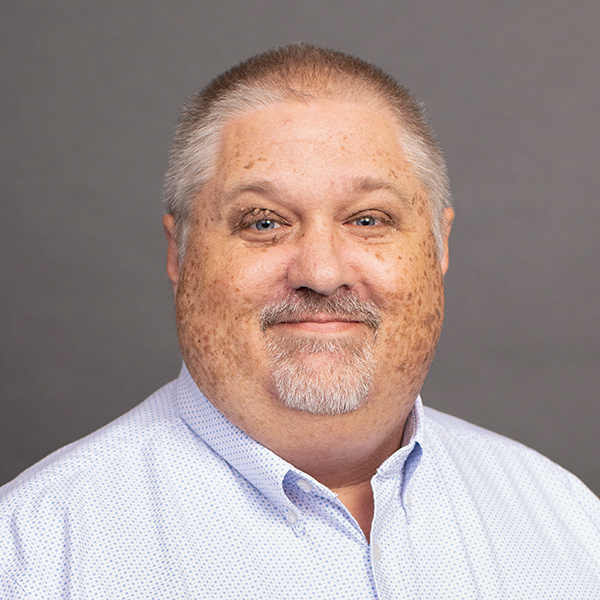major in psychology
Bachelor’s Degree in Psychology
B.S. in Psychology Program Overview
A bachelor’s degree in Psychology at Freed-Hardeman University allows students to understand the science behind human behavior, attitudes, and relationships. Students will learn to use their knowledge and skills to better understand people’s thoughts, emotions, and motivations.
Department:
Department of Behavioral Sciences
Department chair name:
Chris Creecy
B.S., Ph.D.
Program Coordinator:
Chris Creecy
B.S., Ph.D.
Learning at FHU
Why study psychology at FHU?
At FHU, we have a team of dedicated professors passionate about helping you understand human behavior, social and cultural changes, child development and family relations. Our mission is to prepare you with an arsenal of intellectual and vocational skills to succeed in professional service careers, from counseling to research.

Program Highlights:
- Passionate professors and faculty
- Hands-on experience and skill development
- Internships, volunteer opportunities, and research projects
- Learn to take on any challenge
- Learn how to make sense of the human psyche
- Make a positive impact on the world around you
Bachelor’s Degree in Psychology Four-Year Plans
As a psychology major, you’ll learn to understand the human mind and behavior and develop valuable skills that employers are actively seeking. With a confident attitude, drive and diligent planning, you can tackle the rigorous coursework and earn your Bachelor of Science in Psychology, ready to take on any challenge that comes your way. Having a four-year plan in place is vital to help guide you through the necessary coursework and requirements to graduate on time.
2024-2025 4-Year Plan(s)
2023-2024 4-Year Plan(s)
2022-2023 4-Year Plan(s)
2021-2022 4-Year Plan(s)

Careers for Psychology Majors
With a focus on the human mind and behavior, psychology students learn about topics ranging from cognitive processes and social psychology to developmental and abnormal psychology research. This well-rounded education prepares them to work in various fields, from healthcare and social work to research and education. Whether they want to work one-on-one with clients, conduct experiments in a lab or teach others about human behavior, there is a career path for psychology majors that can fit their unique interests and goals.
- Healthcare
- Counseling
- Research
- Education
- Human Resources
- Social Work
- Marketing and Sales
- Mental Health Counselors
Psychology Degree Requirements
To earn a degree in psychology, students must fulfill course requirements in areas such as statistics, research methods, physiological psychology, developmental psychology, and the social sciences of psychology. Additionally, students may have the option to choose from a variety of sub-fields, such as criminal investigation, parenting, or crisis intervention.
I. Liberal Arts Core Requirements - 34 hours
Listed in this catalog under Academics: Liberal Arts Core
II. Major Requirements - 41 hours
| PSY 210 | General Psychology | 3 |
| PSY 215 | Introduction to Psychological Practice | 2 |
| PSY 218 | Abnormal Psychology | 3 |
| PSY 310 | Developmental Psychology | 3 |
| PSY 311 | Research Methods in Psychology I (W) | 3 |
| PSY 312 | Social Psychology | 3 |
| PSY 315 | Learning and Memory | 3 |
| PSY 316 | Statistics for the Behavioral Sciences | 3 |
| PSY 408 | Family and Individual Counseling | 3 |
| PSY 414 | Research Methods in Psychology II (W) | 3 |
| PSY 418 | Physiological Psychology | 3 |
| PSY 419 | Capstone Course in Psychology (W) | 3 |
Plus 6 hours from the following courses:
| CJU 320 | Criminal Investigation | (3) |
| CJU 380 | Criminal Behavior and Profiling | (3) |
| CJU 410 | Criminal Justice Theories (W) | (3) |
| FAM 315 | Marriage and Relationship Development | (3) |
| FAM 325 | Stress and Resilience in Individuals and Families (W) | (3) |
| FAM 331 | Parenting and Family Relations (W) | (3) |
| FAM 335 | Human Sexuality | (3) |
| FAM 399B |
Death and Dying (FAM299B will not meet this requirement) |
(3) |
| PSY 399H |
Psychology in Film (PSY 299H will not meet this requirement) |
(3) |
| PSY 497 | Psychology Internship | (3) |
| SOC 445 | Ethnic Cultures | (3) |
| SWK 320 | Expressive Therapies | (3) |
| SWK 330 | Crisis Intervention | (3) |
| SWK 450 | Interventions with Populations at Risk | (3) |
III. Electives (including additional Bible) - 51 hours
Requirements for Teaching Licensure in Psychology
- Completion of the B.S. major in psychology as outlined above.
- Required professional education course. (See Department of Education entry.)
Meet Our Faculty
Frequently Asked Questions About a Bachelor’s Degree in Psychology at FHU
Below are answers to questions prospective students often have when considering a major in Psychology. If you have additional questions or need more information, please contact [email protected] and they will happily answer questions and provide additional details about our program.
What are the benefits of a bachelor's degree in psychology at FHU?
Freed-Hardeman University (FHU) offers a comprehensive Bachelor’s Degree in Psychology that provides students with the skills and knowledge needed to pursue various career paths and graduate studies in psychology. Some key benefits of pursuing this degree program at FHU include:
- Strong Academic Foundation: FHU’s Bachelor’s Degree in Psychology offers a well-rounded and rigorous curriculum that covers foundational concepts in psychology, including developmental psychology, social psychology, abnormal psychology, and more. It gives students a deep understanding of human behavior, mental processes, and the scientific method.
- Expert Faculty: FHU’s psychology program faculty includes experienced professionals passionate about teaching and mentoring students. They offer personalized attention and guidance to help students achieve their academic and career goals.
- Research Opportunities: FHU encourages undergraduate research, with many Psychology majors participating in faculty-led research projects or conducting independent research under the guidance of a faculty member. These opportunities allow students to apply their classroom knowledge to real-world problems, develop critical thinking skills, and gain valuable experience that can benefit graduate school or future employment.
- Hands-on Learning: The Psychology program at FHU includes numerous laboratory courses where students gain hands-on experience using state-of-the-art equipment and techniques. This practical learning approach helps students develop essential skills and confidence in their abilities as psychologists.
- Christian Environment: FHU integrates Christian principles and perspectives into the Psychology curriculum as a faith-based institution. This unique approach allows students to explore the relationship between psychology and faith, fostering a deeper understanding of the ethical implications of psychological practices.
- Career Preparation: FHU’s Psychology program is designed to prepare students for a variety of careers in the field of psychology, including research, healthcare, education, social services, or counseling. Additionally, the program provides a strong foundation for those planning to pursue graduate studies in psychology, social work, counseling, or other related fields.
- Community Involvement: Psychology students at FHU have opportunities to engage with the local community through service projects and outreach initiatives. This involvement helps students develop valuable leadership skills while positively impacting the world around them.
Freed-Hardeman University offers Psychology majors a comprehensive education that combines rigorous academics, hands-on learning, research opportunities, and a Christian environment. FHU’s Psychology program graduates can expect to be well-prepared for successful careers in psychology or further education in graduate or professional psychology programs elsewhere.
FHU is a great place to pursue a Bachelor’s Degree in Psychology, making it the perfect choice for those looking for an academically rigorous and professionally relevant program. With our experienced faculty and research-driven approach to learning, we help students gain the skills and knowledge needed to succeed in this field.
Freed-Hardeman University is located in Henderson, Tennessee. We are a private university founded by the Church of Christ and offer our students a wide range of degree programs. If you would like to learn more about our Psychology program or any other major offered at FHU, please contact us today! We look forward to helping you achieve your academic and career goals.
FHU proudly prepares students for their undergraduate degrees and beyond, unlocking potential at every step. Are you ready to be a Lion? Apply now!
What can I do with a major in psychology?
A major in psychology can open up a wide range of career opportunities in various fields, as it provides a deep understanding of human behavior, mental processes, and research methods. Here are some popular career options for psychology majors:
- Clinical Psychologist: Clinical psychologists diagnose and treat mental, emotional, and behavioral disorders. They may work in hospitals, mental health clinics, or private practices, providing therapy to individuals or groups.
- Counselor: Counselors help people improve their mental health and well-being by providing guidance and support. They may specialize in substance abuse, marriage and family therapy, school counseling, or career counseling.
- Social Worker: Social workers help people cope with social and personal issues that affect their daily lives. They may work in schools, hospitals, or government agencies, assisting clients with homelessness, poverty, or child welfare issues.
- Human Resources: Psychology majors can work in human resources, utilizing their understanding of human behavior and motivation to recruit, train, and manage employees. They may specialize in employee relations, training and development, or organizational development.
- Researcher: Psychology students can work as research assistants or coordinators in academic or private research institutions, researching topics such as cognition, perception, emotion, or social behavior.
- Non-profit Work: Psychology graduates can work in non-profit organizations, helping to create and implement programs to address social issues such as mental health, addiction, or domestic violence.
- Education: Psychology majors can become educators, teaching courses in psychology at the primary, secondary, or post-secondary levels. They can also pursue instructional design, curriculum development, or educational research careers.
- Marketing and Advertising: Psychology students can work in marketing and advertising, applying their knowledge of consumer behavior and decision-making to develop effective campaigns. They may specialize in market research, brand management, or consumer behavior analysis.
These are just a few examples of the many career options for bachelor’s degree holders. The versatility of a psychology degree equips students with the skills and knowledge to succeed in a wide range of professional settings and make a meaningful impact on the world around them.
How long does it take to complete a Bachelor of Science in Psychology at FHU?
At Freed-Hardeman University (FHU), a Bachelor of Science in Psychology typically takes four years, assuming a full-time course load and consistent progress throughout the program. This timeframe is standard for psychology degrees in most undergraduate degree programs in the United States.
The four-year duration is divided into eight semesters, during which students complete a series of general education requirements, core clinical psychology, courses, and electives. The curriculum is designed to provide a comprehensive understanding of human behavior, mental processes, research methods, and various psychological theories and principles.
Some factors that can influence the time it takes to complete the Bachelor of Science in Psychology at FHU include:
- Course Load: Students who take fewer courses per semester or need additional time to complete prerequisite courses may require more than four years to complete the program. Conversely, those who take an accelerated course load or have transfer credits from other institutions may be able to graduate sooner.
- Academic Performance: Maintaining a satisfactory grade point average (GPA) and completing all required courses are essential for timely progression through the program. Students who struggle academically may need to repeat classes, which could extend their time to graduation.
- Internships and Research Opportunities: Some students may participate in internships, research projects, or study abroad programs, which can enhance their educational experience but may also extend the time it takes to complete their degree.
- Personal Factors: Individual circumstances, such as financial constraints, family responsibilities, or health issues, can affect a student’s ability to maintain a full-time course load and stay on track for a four-year completion timeline.
In summary, the Bachelor of Science in Psychology at Freed-Hardeman University typically takes four years for full-time students who maintain steady progress throughout the program. However, individual factors and choices can impact the actual duration of the program for each student.
If you’re ready to take the next step towards earning your Bachelor of Science in Psychology, contact [email protected] to find out more about the program, graduate degree tracts, and available resources. Learn how you can become a powerful force for positive change in the world!
Good luck as you embark on this exciting journey! We wish you the best of success in your psychology degree at Freed-Hardeman University. Go Lions!
What is the job outlook for psychology majors?
According to the U.S. Bureau of Labor Statistics (BLS), employment of psychologists is expected to grow by 3% from 2019 to 2029, which is about as fast as the average for all occupations. The job outlook for psychology majors is generally positive, with various career options available in multiple fields. However, the job market may vary depending on the specific area and level of education.
Here are some key factors that can affect the job outlook for psychology majors:
- Degree Level: The level of education can significantly impact job opportunities for psychology majors. Those with a bachelor’s degree in psychology may have fewer opportunities than those with advanced degrees, such as a master’s or doctoral degree. Advanced degrees can lead to higher-paying positions like clinical psychologists or university professors.
- Specialization: Specializing in a particular area of psychology can also increase job opportunities and earning potential. For instance, those with expertise in behavioral neuroscience, industrial-organizational psychology, or geropsychology may have more options in their respective fields.
- Industry: Psychology majors can work in various sectors, such as healthcare, education, research, or government. The job outlook may vary depending on the industry and the specific job function. For instance, opportunities for clinical psychologists are expected to increase due to the growing demand for mental health services, while jobs in academic research may be more competitive.
- Geographic Location: The job outlook for psychology majors may differ based on location. Job opportunities may be more significant in specific regions or states, depending on the demand for mental health services or research institutions.
The job outlook for psychology majors is generally positive, with various career options available in multiple fields. While the job market may vary depending on the specific area, level of education, specialization, industry, and geographic location, psychology majors can expect to have opportunities for meaningful and rewarding careers in a growing field
Still Deciding on a major?



